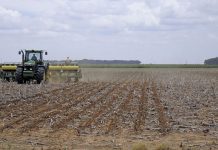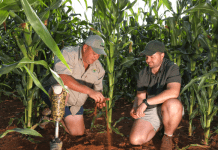
Photo: FW Archive
Fruit and vegetable farmers who paid Product Control for Agriculture (Procon) for inspection services since 2017 should demand a refund. This was according to BJ van Zyl, director of ZZ2 and chairperson of the Tomato Producers’ Organisation (TPO).
He was responding to the Supreme Court of Appeal in Bloemfontein recently upholding an appeal with costs in favour of ZZ2, the TPO and the Northern Onion Committee against the Department of Agriculture, Land Reform and Rural Development (agriculture department) and government assignee Procon.
READ All about vegetables
“Around 2017, Procon was appointed by the [agriculture] department as assignee, and [the company] was able to conduct inspections within the fruit and vegetable sector, on farms, in [storage] facilities, at the fresh produce markets, and on retail level,” Van Zyl said.
“In principle, the TPO is not against inspections, but we are unhappy about the manner in which the fee was determined, and the fact that the Agricultural Product Standards Act (Act No. 119 of 1990) enabled Procon to determine its own fees.”
The court found that Procon’s consultation process was insufficient, as it did not publish the basis or methodology that was used to determine the fees. Procon also did not disclose whether the fees were based on a cost recovery basis, or whether it accounted for profit.
READ Succession planning: get expert help and understand your options
The assignee also did not disclose how or why different rates were applied to different products.
“We warned Procon that it should not invoice farmers or retailers while this case was still sub judice,” Van Zyl said.
“Now farmers, retailers and all other affected parties can claim back any fees that they have already paid for inspections done since 2017. Procon will also need to restart the entire consultation process of fee determination.”
Van Zyl said this time around the TPO would be monitoring the entire process to ensure “that every move Procon makes is fair and legal”.
The court did, however, find against the appellants by reaffirming that it was constitutional for the agriculture department to appoint assignees, and for the latter to levy fees.
Theo Boshoff, head of legal intelligence at Agbiz, said although this ruling did not invalidate the system of assignees, it did set the bar for consultation and rationality at a high level.
“Due to this ruling, assignees will now have to engage meaningfully and in detail with industry. This will stand all parties in good stead with future consultations as assignees are appointed to perform regulatory functions on behalf of the [department].”









